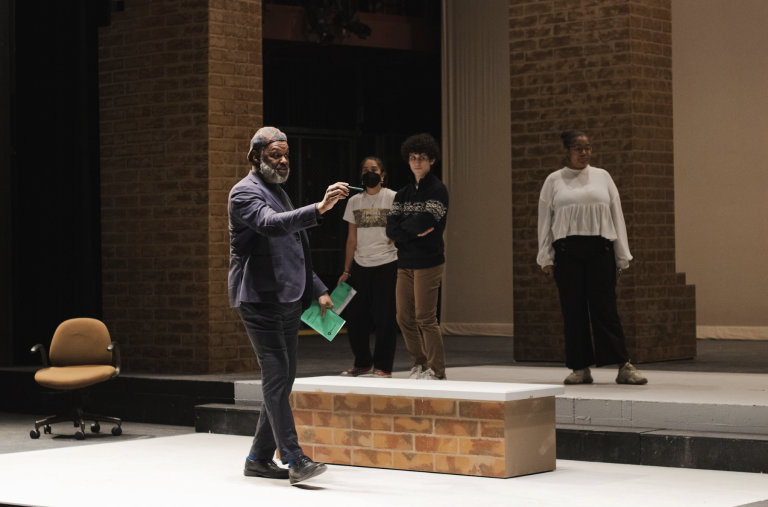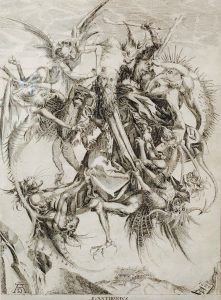TRIP SLAYMAKER ’18
A&E EDITOR
The trouble with “coming of age stories,” and most movies about growing up is that they are too orderly. Sto- ries need to appear self-contained in movies and books, where every conflict that is raised gets solved by the end, tied up in a bow. This is almost never the case, in life. The turbulent years before adulthood can be fraught with anxieties and frustra- tions that do not resolve, and stay with us through life.
This reality is not lost on last year’s “Moonlight”, now nominated for Best Picture at the upcoming Academy Awards. Though it is accessible to anyone by way of the universal emotions of frustration, disillusionment and hope that it channels so perfectly, Moonlight tells the very specific story of a young, black, gay man named Chiron. The character appears at three points in his life. First, played by the emotive Alex R. Hibbert, Chiron appears at around age ten. Life is treach- erous in the impoverished neighborhood where Chiron lives with his mother (Naomie Harris), a caring wom- an whose attention wavers and disappears as she sinks deeper into the grip of addic- tion. Chiron’s world is full of doors and paths that lead to destruction, and every choice
feels like the wrong one.
As the young man begins to reflect more carefully on theworldandhisplaceinit, he places his trust in an adult man named Juan (“House of Cards”’s Mahershala Ali). The man is a drug dealer, the very person supplying Chiron’s mother with the crack that is destroying her life. And yet, through his guilt, he cannot help but watch out for Chiron, alone in the world. Ali’s per- formance renders the man in a vivid light, and shows that the character above all values honor. In a memorable scene, the young Chiron, Juan and his wife (Janelle Monae) sit around a breakfast table. When pressed by the boy as to why the other kids his age treat him differently and ma- lign him for his mannerisms, the two surrogate guardians tell him that he may well be gay. It’s hard for him to un- derstand. The tragedy of the moment is that just as Chiron’s perspective has widened enough for him to under- stand himself more clearly, he makes another connection. “My mama does drugs?” Chiron asks, a moment lat- er. “And you sell drugs?”
When the next act of the film begins, Chiron has grown into a tall, lanky teen with a habit of staying quiet whenever possible. It is clear that while he has lived ten long years since we saw him last, the hardships of his childhood have not left him. Now in high-school, Chiron feels understandably unmoored in life, hiding to remain safe from the violent comings and goings of his frustrated class- mates. These scenes reinforce the brokenness of the system where these African-American teenagers live without resorting to an indictment. Instead, “Moonlight” asks to breeze alongside our socie- tal failures as though living a day in the life of someone who suffers because of them.
When the teenage Chiron is confronted with anger and aggression in school, he lashes out against the cycle of de- spair he sees around him, and becomes its victim. In a mo- ment that is better seen than read, Chiron is forced to break away from his childhood life,and enter into adulthood.
The third act of the movie follows the life of the adult Chiron, and answers the pressing questions of the earlier scenes with a flourish of poetry, and a long-lasting stillness that has rarely been achieved on film before. The artistry of the film is its willingness to defy categorization, and be at once full of gritty realism and dreamy poetry.It is not Chiron’s world that is on display, but the interior parts of his life, and how they weigh and outweigh his poor, black, gay personhood. Even shared among three excellent actors, Chiron’s character feels profoundly real, and remains miraculously consistent throughout all three chapters. Chiron at 30 is the same person as Chiron at 10.
“Moonlight” is as painful as it is beautiful. The emotional upheaval of youth is shown in striking clarity, enough for any person to identify and sympathize with Chiron on a nearly person-to-person level. At the same moment, to be with him in the abject suffering of poverty in America is essential. Chiron’s path leads through the questions of race and belonging, sexu- ality and male masculinity, and class struggle all with- out belittling or oversimpli- fying these issues. They are simply facts of life, aspects of a greater whole. This impossible balancing act is why “Moonlight” deserves to be awarded Best Picture. “Moonlight” will be shown at Cinestudio from Sunday Feb. 26 to Wednesday Mar. 1.
Tuesday, January 14 2025
The Student Newspaper at Trinity College in Hartford, Connecticut





+ There are no comments
Add yours